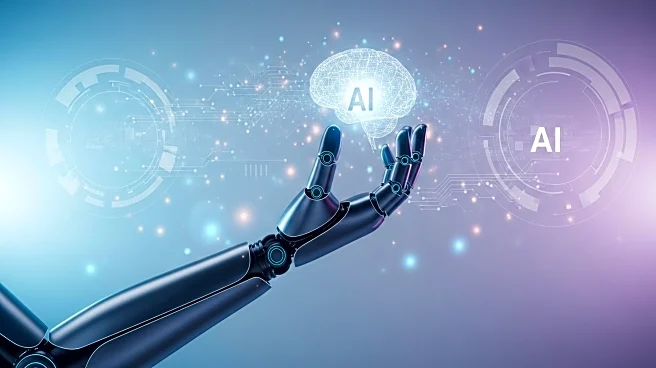What's Happening?
Melania Trump has announced a new initiative called the Presidential Artificial Intelligence Challenge, aimed at engaging K-12 students in using AI tools to address community-based problems. This initiative is part of her role as the face of the Trump administration's push towards artificial intelligence. The challenge is likened to a 'Presidential Fitness Challenge' but focused on AI, encouraging students to explore and solve real-world issues through technology. Melania Trump, who has previously been involved in various public initiatives, is now positioning herself as a key figure in promoting AI education among young people.
Why It's Important?
The initiative underscores the growing emphasis on artificial intelligence in education and public policy. By involving students in AI projects, the program aims to foster early interest and skills in a field that is increasingly critical to the U.S. economy and global competitiveness. This move could potentially benefit tech companies by creating a future workforce skilled in AI, while also addressing societal challenges through innovative solutions. However, it also raises questions about the ethical use of AI and the need for comprehensive education on its implications.
What's Next?
The success of the initiative will likely depend on the level of engagement from schools and students, as well as the support from tech companies and educational institutions. Future developments may include partnerships with tech firms to provide resources and mentorship, as well as potential expansions of the program to include more advanced AI challenges. The initiative could also influence public policy discussions on AI education and its role in the national curriculum.
Beyond the Headlines
The initiative highlights the broader cultural and ethical considerations of AI in society. As AI becomes more integrated into daily life, there is a need for discussions on data privacy, algorithmic bias, and the societal impact of automation. Melania Trump's involvement also reflects the intersection of technology and public figures in shaping public perception and policy.









